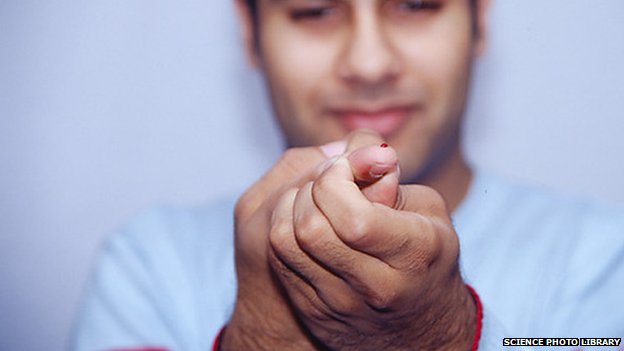Labelling people as having pre-diabetes is “unhelpful and unnecessary”, researchers claim.
The definition, given to people on the “cusp” of type 2 diabetes, has no clinical worth, a joint UK-US team argues.
There is no proven benefit of prescribing drugs as many will not develop diabetes, the researchers write in the British Medical Journal.
But a charity said being identified as being at high risk was helpful.
It offered the chance to reduce risk by eating a healthy diet and being physically active, said Diabetes UK.
‘Medicalisation’ concerns
People with pre-diabetes have no symptoms of ill health, but their blood sugar levels are at the high end of the normal range.
The term is not recognised by the World Health Organization but has been used in many scientific papers.
According to a new wider definition of pre-diabetes, adopted by the American Diabetes Association in 2010, a third of adults in England and half of those in China fall into this category.
Figures suggest about one in ten will go on to develop type 2 diabetes each year.
Prof John Yudkin, of UCL, and colleagues at the Mayo Clinic in Minnesota, US, said current definitions of pre-diabetes risked “unnecessary” medicalisation and created “unsustainable burdens” for healthcare systems.
“Pre-diabetes is an artificial category with virtually zero clinical relevance,” he said.
“There is no proven benefit of giving diabetes treatment drugs to people in this category before they develop diabetes, particularly since many of them would not go on to develop diabetes anyway.
“More people are being included in the medical category of pre-diabetes without the evidence that they are going to benefit from the interventions,” he told BBC News.
Public health interventions
However, Diabetes UK said that while there may be debate about the exact criteria and definitions of pre-diabetes, more people were developing type 2 diabetes or showing signs of being at risk.
“Being identified as having pre-diabetes, borderline diabetes or being at high risk provides an opportunity for those people who have a major chance of developing type 2 diabetes, a lifelong condition which is associated with extremely serious complications such as blindness and stroke, to walk away from it,” said chief executive Barbara Young.
Up to 18 million people in the UK potentially fall into the category of having pre-diabetes, she said.
This highlights the need for public health interventions to avoid a “dramatic” increase in type 2 diabetes in the future.
“Eating a healthy balanced diet, low in salt, sugar and fat and rich in fruit and vegetables, as well as being physically active, is the best way of reducing the risk of developing type 2 diabetes.”
Around 3.2 million people in the UK have type 2 diabetes and Diabetes UK estimates that figure will rise to five million by 2025.
The condition develops when the insulin-producing cells in the body are unable to produce enough insulin, or when the insulin that is produced does not work properly.
Source: BBC


